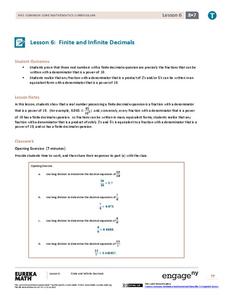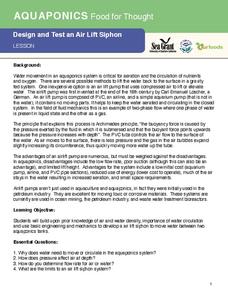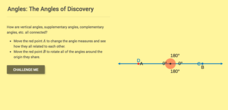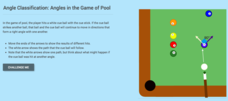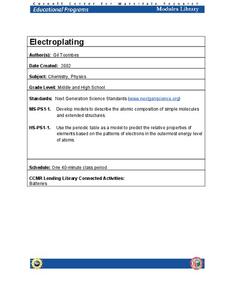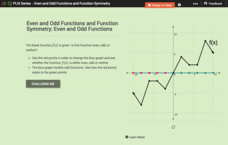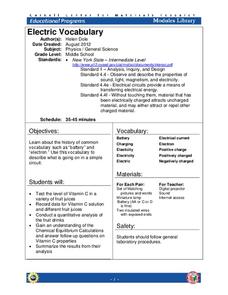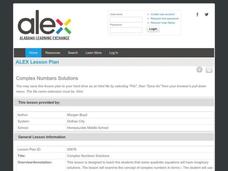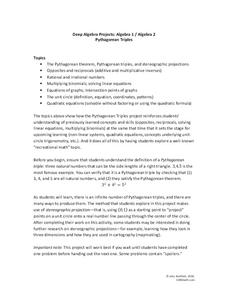Code.org
Asymmetric Keys – Cups and Beans
Beans are for more than just counting! Introduce public key cryptography with cups and beans and ask scholars to use the beans to send secret numbers. Participants learn how this activity relates to public key cryptography and asymmetric...
EngageNY
Finite and Infinite Decimals
Explore the patterns of fractions that produce finite and infinite decimals. The sixth lesson of the series asks learners to determine a similar feature of fractions that produce finite decimals. Using the patterns, pupils create...
EngageNY
Cones and Spheres
Explore methods for finding the volume of different three-dimensional figures. The 20th instructional activity in the 25-part series asks learners to interpret diagrams of 3-D figures and use formulas to determine volume. Scholars must...
Teach Engineering
Alloy Advantage
Mix it up by using an intriguing resource that teaches young metallurgists that alloys are a metal mixture. They learn about the advantages of using alloys over pure metals and investigate titanium alloys as an example to finish the...
EngageNY
Writing Division Expressions II
Division is division is division is division ... four different ways to write division. Scholars continue to learn about division expressions. They translate between several forms, including verbal phrases, expressions using the division...
LABScI
Acids and Bases: Cabbage Juice pH Indicator
Explore the range of pH using an assortment of household liquids. Scholars create their own pH indicators from cabbage and determine the pH of several liquids. To further their exploration, individuals use the same liquids to create...
LABScI
Stoichiometry: Baking Soda and Vinegar Reactions
Examine the concept of stoichiometry using common household products. Scholars perform chemical reactions and measure the reactants and products. They compare their measurements to predictions made from the chemical equations.
CK-12 Foundation
Special Triangle Ratios: Special Right Triangle Ratios
Go from one side length to any other side length with special right triangles. Individuals use the interactive to investigate the ratio of sides in 45-45 and 30-60 right triangles. Scholars make generalizations about the types of special...
University of Southern California
Design and Test an Air Lift Siphon
Build an air lift siphon using your mad physics skills! Learners first investigate the importance of circulating water in aquaponics systems. They then use density to their advantage as they engineer an air lift siphon
CK-12 Foundation
Angles: The Angle of Discovery
Practice important angle vocabulary using an interactive lesson. As learners manipulate vertical angles, they watch the supplementary and congruent angles adjust. Questions pertaining to vocabulary and measurements follow their exploration.
CK-12 Foundation
Angle Classification: Angles in the Game of Pool
Make a game of angle classification. Using the direction of the pool ball, scholars determine the measure of the created angles. They work to create and classify different types of angles throughout an engaging interactive.
Channel Islands Film
Sa Hi Pa Ca (Once Upon a Time): Lesson Plan 2
What tools do archaeologists and anthropologist use to learned about what life was like in the past. After watching West of The West's documentary Once Upon a Time that details how scientists use artifacts to establish a history of the...
Cornell University
Electroplating
Silver pennies and copper nickels are made possible by applying some chemistry. Learners use electrolysis to coat a penny with zinc sulfate and a nickel with copper sulfate. Their investigation builds an understanding of electroplating...
CK-12 Foundation
Even and Odd Functions and Function Symmetry: Even and Odd Functions
Even, odd, or neither? Pupils study even and odd functions using a well-balanced interactive. They determine whether a given function is even or odd from its graph.
CK-12 Foundation
Ellipses: The Ellipse
Learners explore ellipses by changing the lengths and orientation of the major and minor axis. Using the interactive, they determine the equation of the ellipse and its eccentricity. Given an equation the scholars identify the center,...
Cornell University
Electric Vocabulary
Practice electric vocabulary using multiple methods. Learners begin by watching a video that explains vocabulary related to electric currents. They match vocabulary cards to practice and then create an electric circuit. Using the...
Alabama Learning Exchange
Complex Numbers Solutions
Complex doesn't have to mean harder! Learners experiment with online software to determine the quadratic equations with complex solutions. They use the quadratic formula to solve equations with both real and complex solutions.
Virginia Department of Education
Organizing Topic: Probability
The probability is high learning will occur! A well-designed unit introduces learners to the concepts of independent, dependent, and mutually exclusive events. Using Venn diagrams, the lessons ask learners to analyze many different...
Roald Dahl
The Twits - The Twits Get the Shrinks
Turn readers into investigative journalists. The 11th and final lesson plan that accompanies The Twits by Roald Dahl asks the question "What happened to Mr. and Mrs. Twit?" The lesson plan uses mind maps and group discussion to help...
5280 Math
Pythagorean Triples
From Pythagorean triples to the unit circle. Learners use the Pythagorean Theorem to find Pythagorean triples and then relate their work to the unit circle in a fun algebra project. Their discovery that x^2+y^2 is always equal to one on...
Mathematics Vision Project
Module 9: Statistics
All disciplines use data! A seven-lesson unit teaches learners the basics of analyzing all types of data. The unit begins with a study of the shape of data displays and the analysis of a normal distribution. Later lessons discuss the...
Mathematics Vision Project
Module 5: Circles A Geometric Perspective
Circles, circles, everywhere! Pupils learn all about circles, central angles, inscribed angles, circle theorems, arc length, area of sectors, and radian measure using a set of 12 lessons. They then discover volume formulas through...
Shakespeare Globe Trust
Fact Sheet: Playhouses
Laborers used common materials to build London's first performance venues, including sticks, plaster, and ... hair? Using an informational handout, scholars learn about the construction of different types of playhouses where actors...
Reed Novel Studies
The Mouse and The Motorcycle: Novel Study
A mouse on a motorcycle—what could possibly go wrong? Using the novel study that accompanies Beverly Cleary's The Mouse and the Motorcycle, pupils complete a brief vocabulary activity and then answer questions about the text. Next, they...



